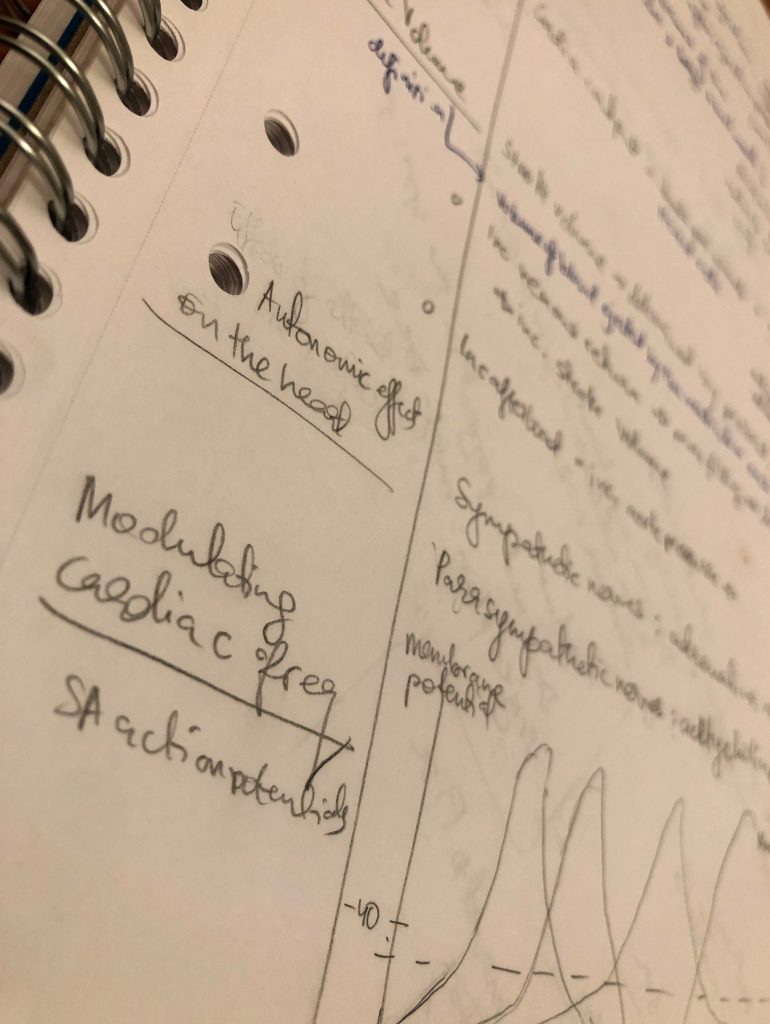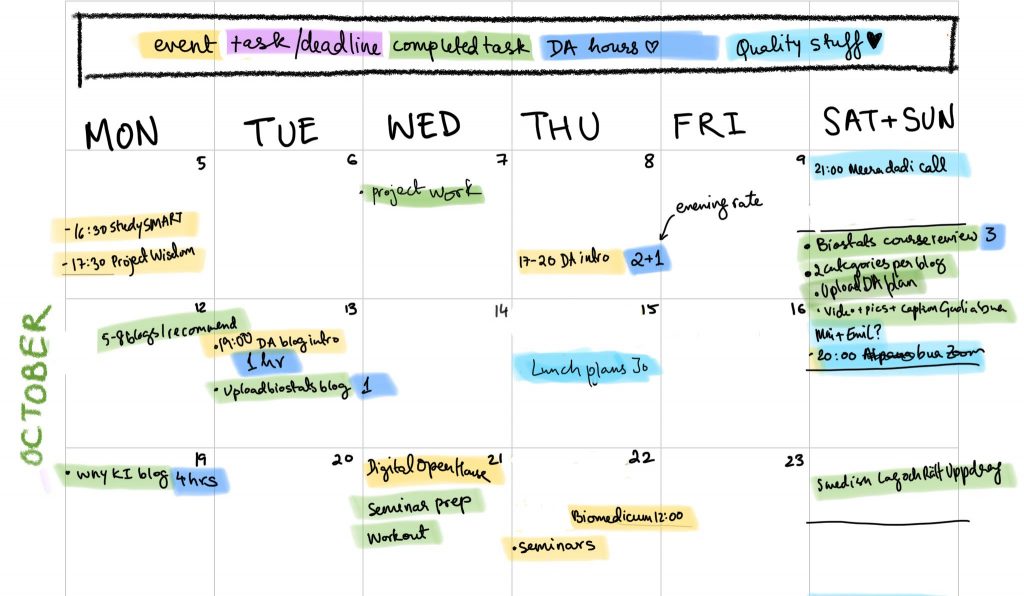
5 reminders to prep you for studying at KI
You’ve applied to KI, and are now waiting in suspense for the selection results! In the meantime, you may be assessing your options: what will make you and KI a good fit?
I’m here with one important reminder: there are some skills that will make your experience studying at KI a lot smoother! Whilst they may seem generic, it’s a good idea to brush up on them or take the extra step to improve at them. I’ll elaborate more in this blog, but here is a quick summary:
- Dealing with data
- Making presentations
- Keeping good notes
- Planning your time
- Working with others
1. Dealing with Data
Whether you do it on Excel, R or on some other programme, do brush up on your numbers, tables, equations and graphs. It will be an enormous help for the innumerable labs and projects you’ll be doing.
There are hundreds of free videos online that can give you a crash course in Excel or R, so go ahead and explore!
Moreover, refreshing high school math – especially algebra, statistics, and calculus – will make the chemistry, physiology, and biostatistics courses much easier.
2. Making Presentations
A really common assignment is investigating a topic or scientific literature and giving a presentation on it, usually in a group. It aims to help students integrate the material and learn from each other.

In any case, it’s very beneficial to be able to create and structure presentations efficiently. Familiarizing yourself with collaborative presentation making platforms like Google Slides, Canva, and Prezi will give you a leg up!
This way, you’ll spend less time on the presentation and more on the content, all whilst maintaining the “wow-factor” that comes with a good-looking presentation.
3. Keeping good notes

I cannot emphasize how important note taking has been for my academic life so far. Even though I flit quite enthusiastically between mediums of doing so, having a “database” of information formulated by myself is really important when it comes to studying for exams or doing projects.
I’ve tried most formats: typing, handwriting, writing on the slides, taking notes in book margins, voice notes, and even recording myself explaining a topic. Do whatever works best for you!
4. Planning your time
Planning is the one thing that keeps me sane in my busy schedule, so I would highly recommend building the habit. There are many options so choose something that’s convenient and familiar, and don’t hesitate to explore!
I use a monthly planner on my tablet, which is very easy to customise, edit, and access. I also use a daily planner notebook which is sort of a “brain dump”, where ideas and thoughts can be unceremoniously scribbled down to be dealt with later.
You may want to use something that gives you reminders, or helps you track other habits. You can also incorporate decorating, meal planning, training goals, reflecting, etc. into your planners. It’s all up to you!

5. Working with others
If your education has not emphasised group work until now, then do try out some activities where you need to problem-solve and create something with others!
This will be important as you will be working in groups at least once per course, often for several weeks at a time. Moreover, working in pairs is standard practice for lab work. Basically, being able to coordinate, complementing each other’s strengths, and being considerate towards each other will give you room to enjoy the experience!
If you’re wondering how to get some experience in working in a team, playing sports, organizing events, and doing volunteer work are good ways to do so 🙂

Finally
I wrote this blog because I often get asked: “Is studying at KI intense? Is it challenging? Do you have time for things outside of schoolwork? How much time do you spend studying?”
The advice I give in this blog is what makes it possible for me to say that studying at KI is intense and challenging, but it’s also rewarding and fun. I’m able to make time for things despite the hours I spend studying because I find myself at ease when the coursework involves familiar skills!
Whilst I write from experience in the Bachelor’s Programme in Biomedicine, the advice here should transfer quite well to other programmes as well! So no matter where you end up, I hope this blog helps smoothen out university life for you.
? Inika
Featured image by Kelly Sikkema on Unsplash
Inika Prasad — Biomedicine BSc
Hello, Inika here. I’m a third-year Biomedicine bachelor’s student at KI. I'm from India and a little bit from Sweden. As a Digital Ambassador Blogger, I'll be writing about my programme, things happening in and around KI, and giving insights into university life.


1 comments